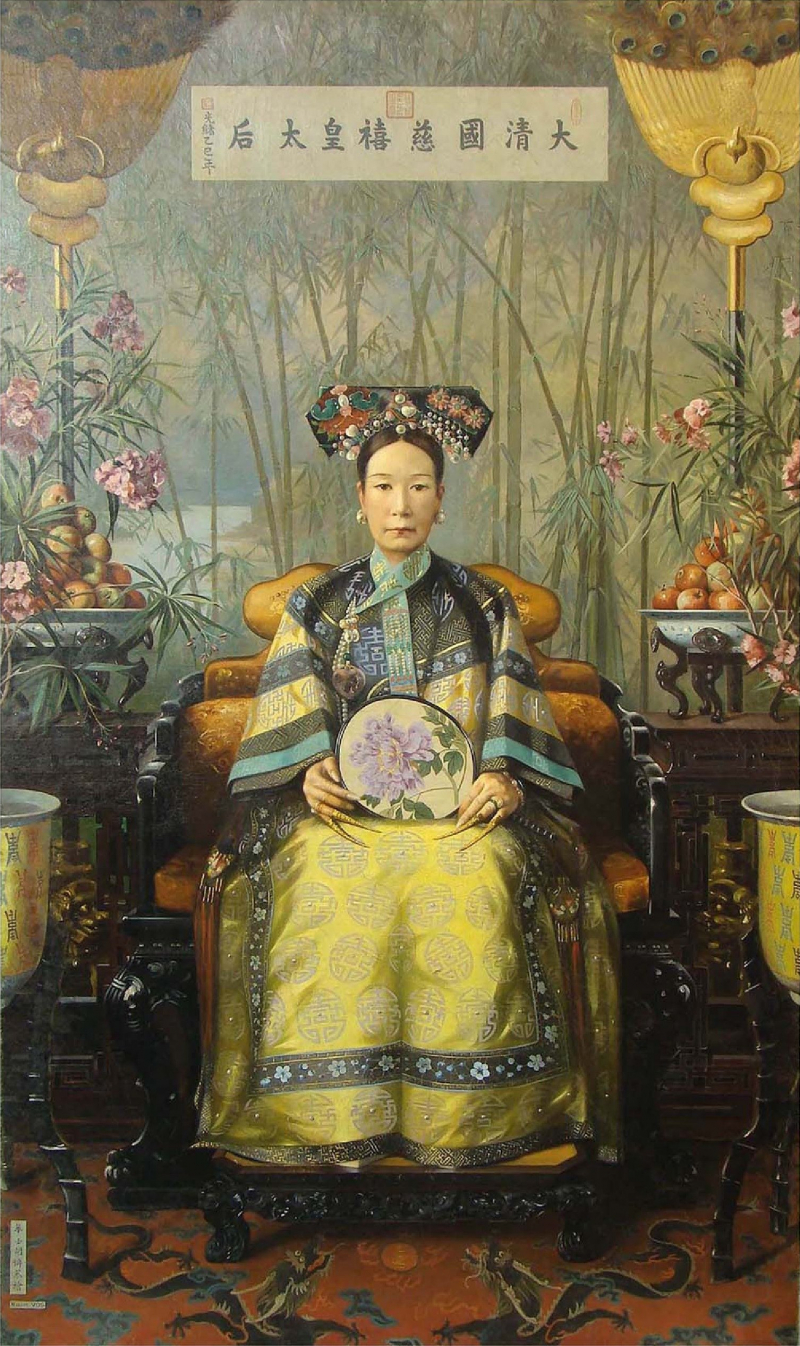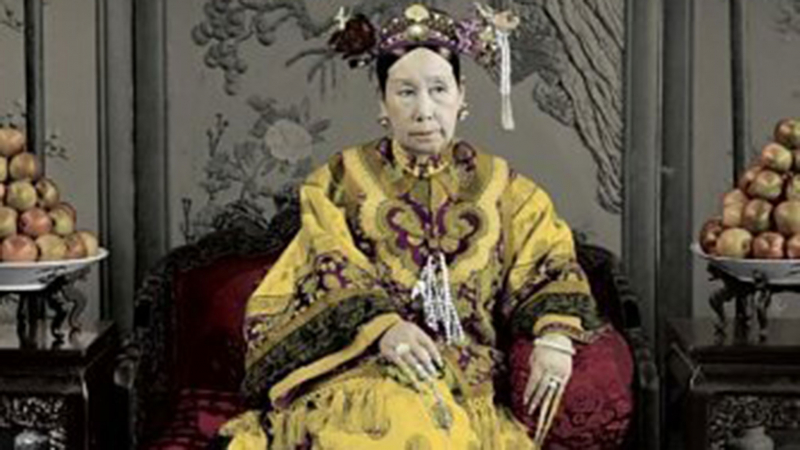Empress Dowager Cixi
Empress Dowager Cixi (Chinese: 慈禧太后; formerly romanised as Empress Dowager T'zu-hsi; 29 November 1835 - 15 November 1908), of the Manchu Yehe Nara clan, was a Chinese noblewoman, concubine, and later Queen Regent. She effectively controlled the Chinese government in the late Qing dynasty for 47 years, from 1861 until her death in 1908. She is considered one of the most important historical figures in China. Selected as the Xianfeng Emperor's concubine in her adolescence, she gave birth to a son, Zaichun, in 1856. Following the death of the Xianfeng Emperor in 1861, the young boy became the Tongzhi Emperor, and she was appointed co-empress dowager alongside the Emperor's widow, Empress Dowager Ci'an. Cixi deposed a group of regents appointed by the late emperor and took over the regency with Ci'an, who later mysteriously disappeared. Cixi then consolidated control of the dynasty when, following the death of her son, the Tongzhi Emperor, she installed her nephew as the Guangxu Emperor in 1975. This was contrary to the Qing dynasty's traditional succession rules, which had ruled China since 1644.
Cixi oversaw the Tongzhi Restoration, a set of moderate reforms that allowed the regime to survive until 1911. Cixi opposed Western models of government but supported technological and military reforms as well as the Self-Strengthening Movement. She supported the principles of the Hundred Days' Reforms of 1898, but was concerned that their abrupt implementation, without bureaucratic support, would be disruptive, and that the Japanese and other foreign powers would exploit any weakness. She put the Guangxu Emperor, whom she suspected of attempting to assassinate her, under virtual house arrest for supporting radical reformers and publicly executing the main reformers. Following the Boxer Rebellion, which resulted in an invasion by Allied armies, Cixi initially supported the Boxer groups and declared war on the invaders. The ensuing humiliation was breathtaking. When Cixi returned to Beijing from Xi'an, where she had abducted the emperor, she became friendly with foreigners in the capital and began to implement fiscal and institutional reforms aimed at transforming China into a constitutional monarchy. Cixi and the Guangxu Emperor died in November 1908, leaving the court in the hands of Manchu conservatives, a child on the throne, and a restless, deeply divided society.
Historians in China and around the world have debated her legacy. Conventionally vilified as a ruthless despot whose reactionary policies, while successfully prolonging the ailing Qing dynasty, led to its humiliation and utter downfall in the Wuchang Uprising. Revisionists claimed that Nationalist and Communist revolutionaries scapegoated her for deep-seated problems that were beyond repair, while praising her ability to maintain political order. In her ailing years, she was responsible for numerous effective, if belated, reforms, including the abolition of slavery, ancient torturous punishments, and the ancient examination system. The latter was supplanted by institutions such as the newly established Peking University.












